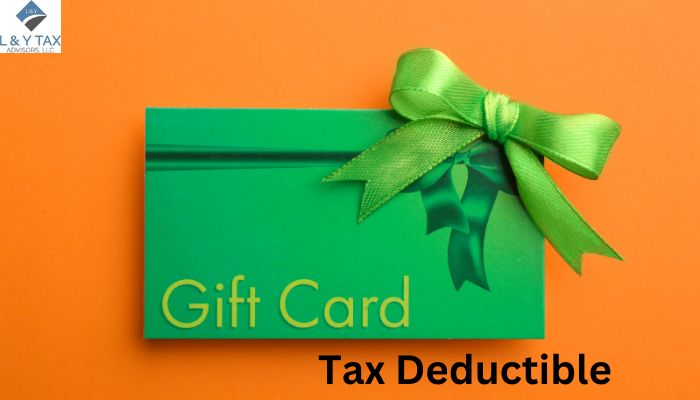
Estate Tax Planning Strategies
Navigating the complexities of estate tax planning strategies is mandatory for you to understand because it involves the development of such plans of action that aim to reduce taxation liabilities on the estate while raising wealth that must be passed to your beneficiaries or heirs after your unfortunate demise – because death is an inescapable destination.
Ensure that your beneficiaries have received the desired inheritance. It is essential to pay attention towards the management and arrangement of your financial assets in such a way that decreases estate tax liabilities upon your miserable quietus.
Utilizing the benefits of estate planning tax strategies is vital to managing a financial legacy. Nobody wishes to have an increased tax burden. You need to learn the tactical concepts to leverage tax laws to reduce this economic weight from your heirs’ shoulders.
Laws and Regulations of Estate Tax
Estate tax rules and regulations can be better apprehended by dividing them into state and federal tax laws, which are as follows:
1. State Estate Tax Laws
The variations in state estate tax laws significantly impact the overall estate tax liability. It is recommended to optimize your estate plan by going through state-specific rates and exemptions.
2. Comparing State Laws
For minimizing the estate tax liabilities, comparing its laws enables you to make informed decisions about relocating or modifying the domicile.
3. State-Specific Rates and Exemptions
While others are not bound to this condition, some countries impose their estate taxes. It is essential to understand the taxation laws of your native country because differences exist between state-specific rates and exemptions. Doing so will help you in the Internal Revenue Service and IRS audit representation sessions.
Federal Estate Tax Laws
The federal estate tax is the financial amount imposed when a deceased person’s assets are transferred to his heirs. Making informed federal estate tax planning decisions is vital to familiarize yourself with the current taxation rates, exemptions, filing requirements, and exclusions.
1. Taxation Rates
Estate taxation rates are progressive and fall from 18% to 40%. Taxable state value decides the rate to be applied – this amount is applicable after deducted exemptions.
2. Filing Requirements
Federal estate returns must be filed within nine months of the decedent’s demise. However, the duration is extended to six months after verifying those cases.
3. Exemptions and Exclusions
The unified credit is a type of exemption the federal estate tax offers. It allows a certain amount to pass as tax-free. Although, this amount is subject to variation and can be indexed for inflation. In general, but under limitless marital deduction, asset transfer between spouses is generally excluded from the estate tax.

Estate Planning Strategies to Reduce Taxes
Estate planning strategies to reduce estate taxes are categorized into three classes: trusts and estate planning tools, gifting techniques, and life insurance strategies.
Click here to know ‘Which is not a basic tax planning strategy?’
1. Trust and Estate Planning Tools
The management of assets’ distribution can be best done with the benefits provided by trust and estate planning tools:
2. Nullifying Living Trusts
These trusts offer lifetime control over assets and avoid probate upon your death. However, you must still pay revocable living trusts as they are part of your payable tax.
3. Irreversible Trusts
Irrevocable or irreversible trusts remain unaltered. Typically, assets transferred to an irreversible trust are excluded from your taxable estate and offer potential savings.
4. Generation-Skipping Trusts
The assets are transferred to your grandchildren through these trusts or decedents living in remote areas. They potentially avoid estate tax for one or more generations.
5. Charitable Trusts
Charitable trusts support your philanthropic goals because they offer adequate advantages on taxation. A typical example is charitable lead trusts (CLTs).
Gifting Strategies
It is essential to reduce taxable estate to avail of the following gifting strategies, which further decreases the liability of estate tax – this is achieved with lifetime gifting assets.
1. Charitable Giving
Taxable estate excludes the gifts presented to philanthropic organizations.
2.Annual Gift Tax Exclusion
Keeping lifetime gift exemptions intact, you can create tax-free gifts up to the annual exclusion amount per recipient.
Life Insurance Strategies
The role life insurance plays significantly impact the estate tax planning strategies, which are as follows:
1. Irrevocable Life Insurance Trust (ILIT)
Death benefits from taxable estate can be excluded from irrevocable life insurance trusts (ILIT). Investing in this policy can lower estate tax liability.
2. Annuities
Income is provided during your lifetime that assists the management of overall estate tax liability.
3. Survivorship Life Insurance
This type of insurance provides coverage for two individuals. It bears the financial burden for death benefits upon the second person’s death.
Who Can Help You with Estate Tax Planning Strategies?
The twisted complications of estate tax planning strategies must be navigated with the help of experienced and qualified tax professionals, including:
1. Estate Planning Attorneys
These specialists help you draft legitimate and official documents and ensure the provision of estate taxation strategies and regulations.
2. Certified Public Accountants (CPAs)
The efficient services of CPAs provide professional assistance for estate tax return preparation and business tax planning strategies.
Conclusion
Preserving and transferring wealth for prospective benefits is the furthest goal taxpayers can ever think about. Estate tax planning strategies demand proactive engagement that minimizes tax liabilities and maximizes the assets passed on to their beneficiaries. No matter how sturdy your organizations are, working mutually with taxation experts is paramount as it is a one-time yet ongoing process that demands regular reviews and updates.
Click here to read about:
Property tax for new construction


